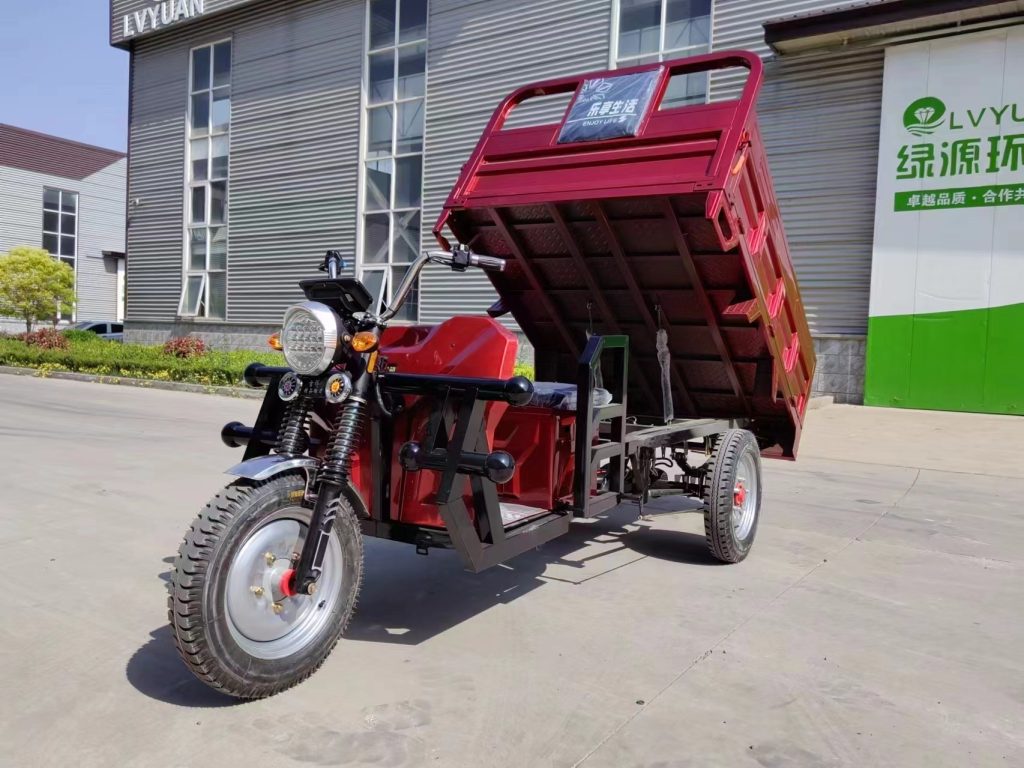In the past two years, electric cargo tricycles have become a breakthrough for enterprises across the board, notably in construction and sanitation. These rugged, space-saving machines are revolutionizing the terrain of materials, equipment, and garbage movement in urban and industrial environments. As opposed to conventional fuel-powered vehicles, electric trikes are eco-friendly, cost-effective, and immensely versatile, and therefore an entrepreneur’s darling for reducing productivity loss without damaging the planet.
Why Electric Cargo Tricycles Are So High Demand
Growing demand for clean mobility in urban areas has driven the adoption of electric trikes. Rising fuel prices, stricter emissions controls, and demands for more flexibility in transport in dense cities have provided them with the most favorable conditions to thrive. Their ease of use, heavy-duty electric motors, and battery endurance make them a viable option for industries that require all-day short-distance haulage.
In addition, an electric cargo tricycle’s space efficiency allows it to travel on narrow city streets, congested building zones, and crowded city blocks that are off-limits to heavy trucks. It is particularly useful for construction and sanitation businesses, where flexibility and efficiency are paramount.
Applications in the Construction Industry
In the construction industry, on-site material handling and logistics typically make or break the overall project efficiency. Long-hauls can be transported in regular trucks or vans, but for moving around construction sites or for short-distance hauling loads, they are not efficient. That is where electric cargo tricycles come in.
1. Hauling Materials and Tools
Small- and medium-sized construction sites can benefit a great deal from the utilization of electric trikes since they can carry bricks, cement bags, pipes, or tools to where they are needed urgently. The workers no longer have to manually carry heavy loads, which saves time as well as reduces the chances of accidents in the workplace.
2. Effective Site Mobility
Construction sites tend to be filled with materials and equipment, and maneuverability is a problem. The electric cargo tricycle‘s narrow width makes it move around crowded spaces with ease, enabling essential supplies to be delivered to working men in time.
3. Cost and Environmental Benefits
Relative to petrol cars, electric freight tricycles consume a fraction of the energy. Due to their minimal cost of running, contractors favour them as a way of cutting expenses, while it is also in line with green building concepts focused on sustainability.
Applications in the Sanitation Industry
Waste disposal and sanitation are industries where reliability, efficiency, and environmental friendliness are paramount. Municipal and city governments constantly challenge themselves annually to implement cleaner garbage collection and recycling methods, and electric trikes are increasingly becoming part of that scenario.
1. Waste Collection in Urban Areas
A large garbage truck is generally not able to move through congested streets or residential roads. However, electric freight tricycles can drive through narrow alleys and residential roads conveniently, collecting garbage more efficiently without disrupting the citizens.
2. Recycling and Sorting Operations
In waste collection services, frequent and quick haulage of recyclables is needed. Electric trikes allow convenient delivery of sorted recyclables to processing facilities, allowing for smoother recycling processes and upholding the circular economy.
3. Quiet and Low-Emission Operation
Because they are powered by electricity, electric trikes are very quiet and do not emit any direct emissions. They are therefore ideal for sanitation workers who work on early morning or late evening shifts, encouraging cleaner cities without noise pollution.
Advantages of Electric Cargo Tricycles
The application of electric tricycles for cargo transportation during construction and sanitation is prompted by several inherent advantages:
- Cost Efficiency: Low maintenance expenses and lack of fuel expenses make them economical in comparison with traditional vehicles.
- Eco-friendly: No tailpipe emissions assist in building better air quality and meet environmental regulations.
- Simple Operation: Simple controls make them accessible to most employees, reducing the need for special training.
- Flexibility: Amortized cargo compartments and beds allow the cars to be tailored towards specific industry needs.
Future Potential
With urbanization and an increasing drive towards sustainability, electric cargo tricycles will become even more critical to urban life. In construction, they will facilitate better handling of material, reduce downtime, and drive more sustainable construction techniques. In sanitation, they will result in cleaner cities by ensuring efficient, quiet, and green waste management systems.
The governments and municipalities are also subsidizing and encouraging the use of green cars, further boosting demand for industrial use of electric tricycles. While vehicle design and battery technology continue to improve, only the payload capacity, efficiency, and mileage of such tricycles will continue to improve in the future.
Conclusion
The technology of electric cargo tricycles transforms industries such as sanitation and construction. The vehicles are a union of functionality, environmental friendliness, and affordability, offering a new way of addressing some of the most essential logistical issues. From moving materials in a construction site or cleaning garbage in the town centers of towns, electric cargo transport tricycles offer a more environmentally friendly, smart, and affordable way of making progress.

 Instant
Quote
Instant
Quote Email
Us
Email
Us